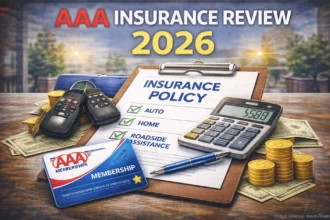
Buying a foreclosed home in the United States can be one of the most rewarding financial decisions you’ll make, but it requires strategic planning, patience, and insider knowledge. With over 320,000 foreclosure filings across the U.S. in 2024 according to ATTOM Data, the opportunities are real – and so are the challenges. This comprehensive guide will walk you through every step of how to buy a foreclosure, from identifying properties to closing the deal successfully.
Understanding Foreclosures: Your Gateway to Below-Market Properties
A foreclosure occurs when a lender legally repossesses a property from a homeowner who has defaulted on their mortgage payments. Unlike traditional real estate transactions, foreclosed properties are typically sold at substantial discounts – often 20-30% below market value – because lenders are motivated to recover their investment quickly rather than manage real estate portfolios.
Why Foreclosed Homes Offer Such Value
The primary appeal of foreclosed properties lies in their pricing. Banks and lending institutions aren’t real estate companies – they’re financial entities looking to minimize losses and free up capital. This creates opportunities for savvy buyers who understand how to navigate the complexities of foreclosure purchases.
Recent market analysis shows that foreclosed homes in major metropolitan areas like Phoenix, Las Vegas, and Miami often sell for $50,000 to $100,000 below comparable market-rate properties. However, these savings come with trade-offs that require careful consideration and preparation.
The Five Types of Foreclosure Sales: Choosing Your Strategy

Understanding where a property sits in the foreclosure process is crucial for determining your buying strategy and potential returns.
1. Pre-Foreclosure Properties: Early Bird Opportunities
Pre-foreclosure occurs after the lender has issued a notice of default but before the property goes to auction. During this phase, homeowners still retain ownership and can potentially negotiate a private sale to avoid the foreclosure process entirely.
Advantages of Pre-Foreclosure Purchases:
- Direct negotiation with motivated sellers
- Ability to inspect the property thoroughly
- Potential for significant discounts
- Less competition from investors
How to Find Pre-Foreclosure Properties:
- Check county courthouse records for Notice of Default filings
- Search online databases like RealtyTrac and Foreclosure.com
- Work with real estate agents who specialize in distressed properties
- Drive through neighborhoods showing signs of financial distress
2. Short Sales: Negotiating with Lenders
In a short sale, the lender agrees to accept less than the outstanding mortgage balance. While the homeowner initiates the process, the lender must approve any offers, making this a more complex but potentially rewarding option.
Short sales typically take 3-6 months to complete due to the approval process, but they often result in properties in better condition than traditional foreclosures since the owners remain in the home during the sale process.
3. Sheriff’s Sale Auctions: The Fast Track to Ownership
Sheriff’s sales occur at public auctions, typically on courthouse steps, where properties are sold to the highest bidder. These auctions require immediate payment and offer no opportunity for property inspection beforehand.
Key Considerations for Auction Purchases:
- Cash payment required (usually within 24-48 hours)
- No financing contingencies
- No inspection period
- Properties sold strictly “as-is”
- Potential for outstanding liens and back taxes
4. Bank-Owned (REO) Properties: The Safest Route
Real Estate Owned (REO) properties are foreclosed homes that didn’t sell at auction and reverted to the bank. These properties offer the most security for buyers since banks typically clear outstanding liens and may even complete basic repairs.
REO properties are often listed on the Multiple Listing Service (MLS) and can be purchased through traditional real estate transactions, making them ideal for first-time foreclosure buyers.
5. Government-Owned Properties: Special Programs and Incentives
Properties foreclosed on FHA, VA, or USDA loans become government-owned and are sold through special programs with unique benefits:
- HUD Homes: Properties from FHA foreclosures, often offering down payment assistance
- VA Properties: Available to veterans and the general public with special financing
- USDA Properties: Rural properties with potential for low-interest loans
How to Buy a Foreclosure: A Step-by-Step Process

Step 1: Build Your Foreclosure-Ready Team
Success in foreclosure investing starts with assembling the right team of professionals who understand the unique challenges of distressed property purchases.
Essential Team Members:
- Real Estate Agent: Look for agents with CDPE (Certified Distressed Property Expert) or SFR (Short Sales and Foreclosure Resource) certifications
- Mortgage Broker: Experienced with foreclosure financing options
- Real Estate Attorney: Specializing in foreclosure law
- Home Inspector: Familiar with assessing severely distressed properties
- Contractor: For accurate repair estimates
- Accountant: To understand tax implications and investment strategies
Step 2: Secure Financing and Pre-Approval
Most foreclosure sellers prefer cash offers, but financing options exist for qualified buyers. Secure pre-approval before shopping to demonstrate serious intent and speed up the buying process.
Specialized Foreclosure Financing Options:
FHA 203(k) Loans:
- Finance purchase price plus up to $35,000 in repairs
- Streamlined version for non-structural improvements
- Standard version for major renovations
- Higher interest rates but single closing process
Fannie Mae HomePath Program:
- Up to 3% closing cost assistance for first-time buyers
- Reduced down payment requirements
- Private mortgage insurance cancellation at 20% equity
Freddie Mac HomeSteps Program:
- No mortgage insurance required
- No appraisal needed at origination
- Special financing for Freddie Mac-owned properties
Step 3: Research and Identify Target Properties
Effective foreclosure hunting requires systematic research and market knowledge.
Where to Find Foreclosed Properties:
- Bank Websites: Bank of America, Chase, Wells Fargo maintain REO inventories
- Government Sites: HUD.gov, Fannie Mae HomePath, Freddie Mac HomeSteps
- Foreclosure Databases: RealtyTrac, Foreclosure.com, Auction.com
- Local MLS: Properties may not be flagged as foreclosures
- Courthouse Records: For pre-foreclosure opportunities
Research Checklist for Each Property:
- Neighborhood trend analysis
- Comparable sales (comps) from last 6 months
- Property tax history and current assessments
- Outstanding liens and HOA dues
- Repair estimates and renovation costs
- Local market conditions and appreciation trends
Step 4: Perform Due Diligence and Property Analysis
Before making an offer, conduct thorough due diligence to avoid costly surprises.
Financial Analysis Framework:
- Purchase Price: Your maximum offer based on comps
- Repair Costs: Conservative estimates including 20% contingency
- Carrying Costs: Taxes, insurance, utilities during renovation
- Transaction Costs: Legal fees, inspections, closing costs
- Expected Market Value: After repairs and improvements
The 70% Rule for Investors: Maximum offer = (After Repair Value × 70%) – Repair Costs
This formula ensures adequate profit margins while accounting for unexpected expenses and market fluctuations.
Step 5: Making Competitive Offers
Foreclosure markets can be highly competitive, especially for well-priced properties in desirable areas.
Offer Strategy Considerations:
- Start with 15-20% below asking price for REO properties
- Include strong pre-approval letters
- Minimize contingencies where possible
- Offer quick closing timelines
- Consider escalation clauses in competitive situations
For Pre-Foreclosure and Short Sales:
- Understand the seller’s motivation and timeline
- Provide proof of funds or strong financing
- Be prepared for longer negotiation periods
- Show empathy while remaining professional
Step 6: Navigate the Purchase Process
Each type of foreclosure sale has unique process requirements and timelines.
REO Purchase Process:
- Submit offer through listing agent
- Bank reviews and responds (typically 1-2 weeks)
- Negotiate terms and price
- Sign purchase agreement
- Complete inspections and financing
- Close within 30-45 days
Auction Purchase Process:
- Register for auction
- Arrange financing or cash
- Attend auction and bid
- Immediate deposit required
- Complete payment within 24-48 hours
- Receive deed and take possession
Geographic Considerations: Hot Foreclosure Markets in the USA
Top States for Foreclosure Activity (2024)
- Florida: Judicial foreclosure state with longer timelines
- California: Non-judicial state with faster processes
- Texas: Non-judicial with strong investor protections
- Illinois: Judicial state with high inventory
- Ohio: Mixed laws with significant opportunities
Regional Investment Strategies
West Coast Markets:
- Higher property values but greater appreciation potential
- Tech industry influence on market stability
- Environmental regulations affecting development
Southeast Markets:
- Lower entry costs with strong rental demand
- Growing population driving long-term appreciation
- Hurricane risk considerations for insurance
Midwest Markets:
- Affordable entry points for new investors
- Stable rental markets in college towns
- Rust Belt opportunities for patient investors
Common Risks and How to Mitigate Them
Property Condition Risks
Foreclosed homes are sold “as-is,” meaning you accept the property in its current condition without seller warranties.
Mitigation Strategies:
- Always obtain professional inspections when possible
- Budget 15-25% above estimated repair costs
- Consider properties requiring primarily cosmetic updates
- Factor in potential structural, electrical, and plumbing issues
Financial Risks
Hidden costs can quickly erode foreclosure savings.
Common Hidden Costs:
- Outstanding property taxes and municipal liens
- HOA dues and special assessments
- Utility reconnection fees
- Vandalism and security costs
- Extended vacancy periods
Legal and Title Risks
Foreclosed properties may have complex title issues requiring legal resolution.
Protection Measures:
- Purchase title insurance
- Conduct thorough title searches
- Work with experienced real estate attorneys
- Understand local foreclosure laws and redemption periods
Tax Implications and Strategies
Investment Property Considerations
Tax Benefits:
- Depreciation deductions on rental properties
- Deductible repair and maintenance expenses
- 1031 exchanges for portfolio growth
- Potential for long-term capital gains treatment
Record Keeping Requirements:
- Document all purchase and improvement costs
- Maintain receipts for repairs and materials
- Track rental income and expenses
- Work with qualified tax professionals
Primary Residence Purchases
First-Time Homebuyer Programs:
- FHA loans with 3.5% down payments
- State and local down payment assistance
- Tax credits for energy-efficient improvements
Building a Successful Foreclosure Investment Strategy
Portfolio Diversification
Successful foreclosure investors typically diversify across:
- Property types (single-family, condos, multi-family)
- Geographic markets
- Investment strategies (fix-and-flip, buy-and-hold)
- Price points and risk levels
Scaling Your Operations
As you gain experience, consider:
- Partnering with other investors for larger deals
- Developing relationships with wholesalers
- Creating systems for property management
- Building a network of reliable contractors and vendors
Long-Term Wealth Building
Foreclosure investing can create multiple income streams:
- Immediate profits from flipping
- Monthly cash flow from rentals
- Long-term appreciation
- Equity building through mortgage pay-down
Technology and Tools for Foreclosure Investors
Essential Apps and Platforms
Property Research:
- BiggerPockets investment calculators
- Zillow and Redfin for market analysis
- PropertyRadar for foreclosure data
- Google Earth for neighborhood assessment
Deal Analysis:
- Rehab estimator apps
- Comparative market analysis tools
- Cash flow calculators
- ROI analysis spreadsheets
Project Management:
- Contractor communication platforms
- Budget tracking applications
- Photo documentation tools
- Timeline management systems
Future Trends in Foreclosure Investing
Technology Impact
- Virtual property tours reducing inspection needs
- AI-powered market analysis tools
- Blockchain title transfers
- Drone technology for property assessment
Market Predictions
Industry experts predict continued opportunities in:
- Secondary markets benefiting from remote work trends
- Climate-resilient locations attracting relocating residents
- Areas with strong job growth and population expansion
Legal and Regulatory Considerations
Federal Regulations
Fair Housing Act Compliance:
- Non-discriminatory practices in tenant selection
- Equal access to properties regardless of protected status
- Proper advertising and marketing approaches
Consumer Protection Laws:
- Truth in lending requirements
- Lead paint disclosure rules
- Environmental hazard notifications
State-Specific Laws
Each state has unique foreclosure laws affecting timelines, processes, and investor rights. Key variations include:
- Judicial vs. non-judicial foreclosure states
- Redemption periods allowing former owners to reclaim properties
- Deed of trust vs. mortgage states
- Deficiency judgment rules
Conclusion: Your Path to Foreclosure Investment Success
Learning how to buy a foreclosure represents one of the most effective strategies for building wealth through real estate in today’s market. While the process requires more due diligence, patience, and specialized knowledge than traditional home purchases, the potential rewards – both financial and personal – can be substantial.
Success in foreclosure investing comes down to three fundamental principles: education, preparation, and persistence. Start by thoroughly understanding your local market, building relationships with experienced professionals, and developing systematic approaches to property analysis and acquisition.
Remember that every successful foreclosure investor started with their first deal. Begin with properties that match your experience level and risk tolerance, whether that’s a cosmetic fixer-upper for your primary residence or a rental property investment in a stable neighborhood.
The foreclosure market in 2025 offers continued opportunities for informed investors who are willing to do the work. With over 320,000 foreclosure filings nationally, properties are available in virtually every market across America. The key is positioning yourself as a educated, prepared buyer ready to act when the right opportunity presents itself.
Take the first step today by researching foreclosures in your target area, connecting with qualified professionals, and beginning your journey toward real estate investment success. The property that could transform your financial future might be just one foreclosure listing away.
Frequently Asked Questions
Can I finance the purchase of a foreclosed home?
Yes, several financing options exist for foreclosed properties. While cash offers are often preferred, FHA 203(k) loans, Fannie Mae HomePath program, and Freddie Mac HomeSteps program provide financing specifically designed for foreclosed and distressed properties. Conventional mortgages are also available for REO properties in good condition.
How much should I offer on a foreclosed property?
Start with offers 15-20% below asking price for REO properties, or use the 70% rule for investments: offer no more than 70% of the after-repair value minus estimated repair costs. Research comparable sales and factor in the property’s condition, local market dynamics, and competition level.
What are the biggest risks of buying a foreclosed home?
Major risks include unknown property conditions, hidden costs like back taxes and liens, potential vandalism, title issues, and longer transaction times. Mitigate these risks through thorough due diligence, professional inspections when possible, title insurance, and working with experienced professionals.
How long does it take to buy a foreclosed property?
Timelines vary significantly by property type. REO properties typically take 30-45 days like traditional sales. Short sales can take 3-6 months due to lender approval processes. Auction purchases are immediate but require cash payment within 24-48 hours. Pre-foreclosure deals depend on negotiation complexity.
Do I need a real estate agent to buy a foreclosed home?
While not required, working with an agent experienced in foreclosures is highly recommended. Look for agents with CDPE or SFR certifications. They can help navigate complex processes, identify properties, negotiate with banks, and protect your interests throughout the transaction.
Are foreclosed homes always a good deal?
Not necessarily. While foreclosures often sell below market value, hidden costs, extensive repairs, and market conditions can eliminate potential savings. Always perform thorough financial analysis, including repair estimates and carrying costs, before assuming a foreclosure represents good value.
Can I inspect a foreclosed property before buying?
Inspection opportunities vary by property type. REO properties typically allow inspections with appropriate contingencies. Auction properties are sold without inspection opportunities. Pre-foreclosure properties may allow inspections if negotiated with the current owner. Always try to inspect when possible.
What happens if I find problems after closing on a foreclosure?
Foreclosed properties are sold “as-is” without seller warranties. You’re responsible for all discovered issues after closing. This emphasizes the importance of thorough pre-purchase inspections and budgeting for potential problems when calculating your maximum offer.
Are there special programs for first-time foreclosure buyers?
Yes, several programs assist first-time buyers. HUD offers the Good Neighbor Next Door program for eligible professionals. Fannie Mae’s HomePath program provides up to 3% closing cost assistance and reduced down payments. Many states also offer down payment assistance programs that can be used for foreclosed properties.
How do I find foreclosed properties in my area?
Search multiple sources including bank websites (Bank of America REO, Wells Fargo REO), government sites (HUD.gov, HomePath.com), foreclosure databases (RealtyTrac, Foreclosure.com), and local MLS listings. Also check courthouse records for pre-foreclosure opportunities and work with agents specializing in distressed properties.





